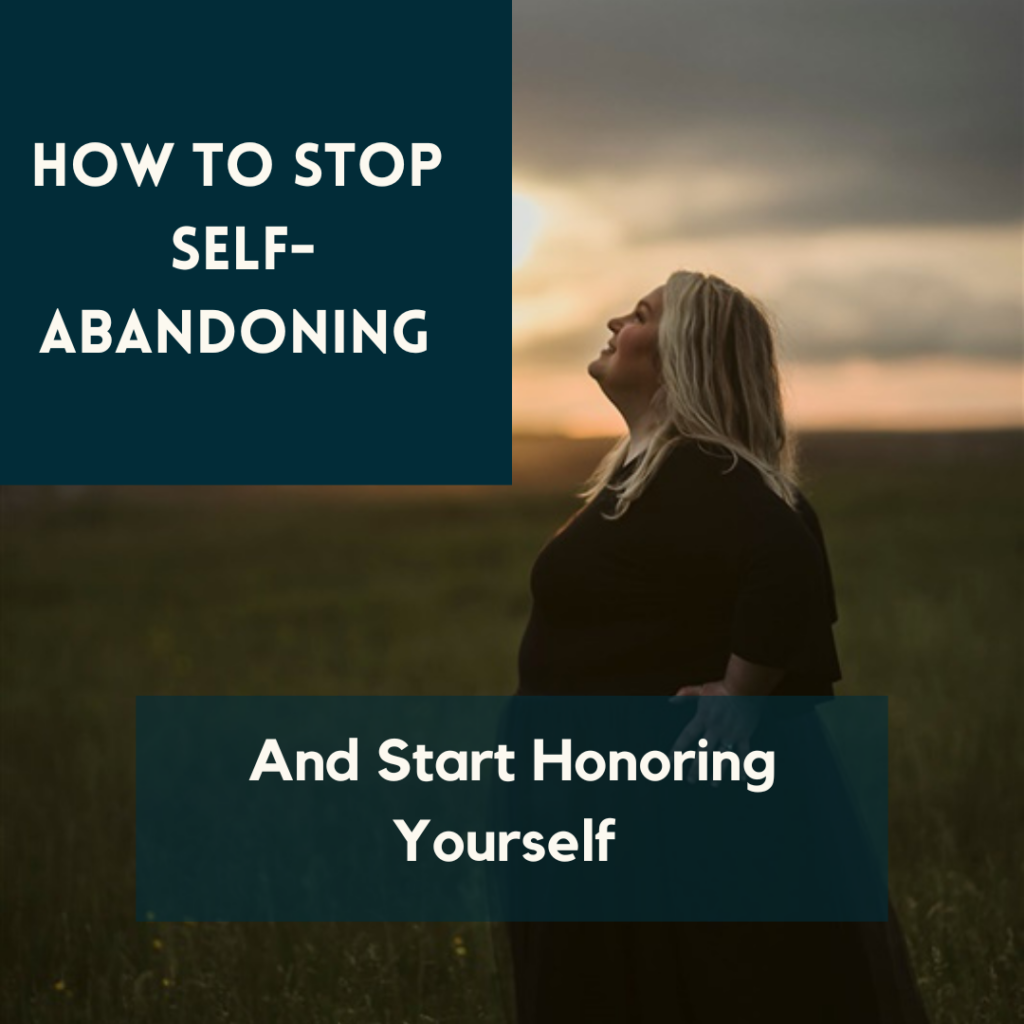
What is Self-Abandonment?
Self-abandonment happens when you ignore your own needs, desires, and emotions in order to please others, avoid conflict, or meet external expectations. It often looks like:
- Saying yes when you want to say no
- Suppressing your feelings to keep the peace
- Prioritizing others’ needs over your own
- Ignoring your intuition or gut instincts
- Dismissing your own boundaries
The good news? You can break this cycle and learn to honor yourself fully.
Signs You’re Self-Abandoning
Not sure if you’re self-abandoning? Here are some common signs:
🚩 You feel disconnected from your own wants and needs
🚩 You struggle to make decisions without external validation
🚩 You people-please to maintain relationships and have leaky or no boundaries
🚩 You ignore your body’s signals of exhaustion or discomfort
🚩 You feel resentful but don’t speak up for yourself
Self-abandonment can leave you feeling drained, unseen, and unfulfilled ~ but healing starts with self-awareness and intentional action.
Why We Self-Abandon (and How to Break the Cycle)
Self-abandonment often stems from early conditioning, trauma, or attachment patterns. If you were taught to prioritize others over yourself, setting boundaries and honoring your needs might feel unfamiliar ~ even unsafe.
Here’s how to start shifting the pattern:
1. Rebuild Trust With Yourself
💡 Practice self-connection daily. Ask yourself: What do I need right now? Listen and respond with kindness.
✨ Try This: Keep a journal where you check in with your emotions and needs each day.
2. Recognize and Honor Your Boundaries
💡 Your needs are just as important as anyone else’s. Start setting small boundaries and work your way up.
✨ Try This: The next time someone asks for something, pause and check in—do you actually want to say yes?
3. Strengthen Your Nervous System
💡 Self-abandonment is often a nervous system response ~ your body might associate self-advocacy with danger. Regulating your nervous system can help you feel safer in choosing yourself.
✨ Try This: Grounding techniques like deep breathing, humming, or shaking out tension can help rewire your body’s response to self-assertion.
4. Use Your Voice With Confidence
💡 Speaking up for yourself is an act of self-loyalty. It’s okay to take up space and express your needs.
✨ Try This: Practice saying “I need…” or “I feel…” without justifying or apologizing.
5. Surround Yourself With Support
💡 Healing self-abandonment is easier when you have a safe, supportive community. Seek out relationships that respect and honor your boundaries.
✨ Try This: If someone consistently dismisses your needs, consider whether that relationship aligns with your growth.
The Long-Term Benefits of Choosing Yourself
When you stop self-abandoning and start honoring your own needs, you will:
✅ Feel more connected to yourself and your intuition
✅ Experience healthier, more reciprocal relationships
✅ Develop greater confidence in your decisions
✅ Reduce resentment and burnout
✅ Cultivate deep self-trust and emotional safety
The journey to self-loyalty isn’t always easy, but every small step matters.
Final Thoughts
Stopping self-abandonment is about learning to choose yourself over and over again—without guilt or fear. You are worthy of being heard, seen, and supported—starting with YOU.
✨ What’s one small way you can honor yourself today? Drop it in the comments!
— If you’ve ever struggled to speak up, felt your voice shake in high-stakes moments, or questioned if your words truly mattered, this practice is for you! —
Click HERE for immediate access to the FREE “Find Your Voice” Guided Audio Training.
Take 11 minutes to activate the power of your voice with this guided practice. Includes: Grounding, breath-work and voice-work exercises to help you regulate your nervous system and build a confident voice.

Hi, I’m Elise Besler! I’m a Somatic Voice, Boundary, and Secure Attachment Coach, specializing in helping women leaders, creatives, and visionaries find their authentic voice, build secure relationships, and set boundaries with confidence. If past experiences have made you feel like you couldn’t have these things, I’m here to show you that you can.
Through a blend of somatic voice coaching, nervous system wisdom, embodied confidence, and powerful communication strategies, I’ll help you show up fully—both in your life and your work. Ready to be heard—fully and unapologetically? Let’s connect. 💌 hello@elisebesler.com

Leave a comment